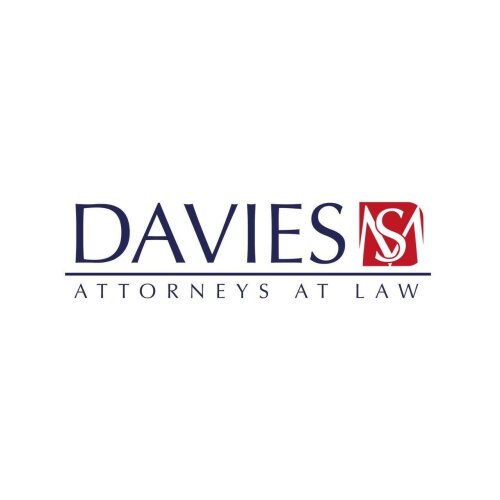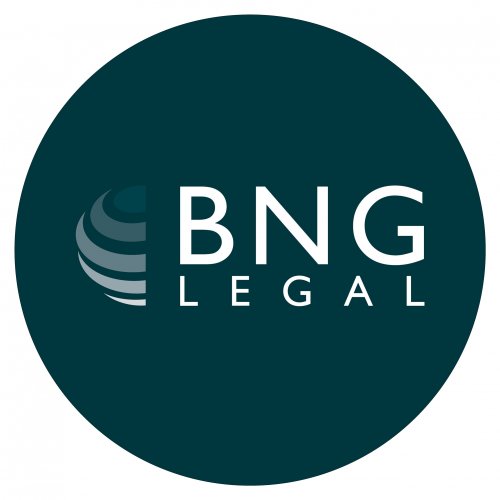Best Sustainable Finance Lawyers in Phnom Penh
Share your needs with us, get contacted by law firms.
Free. Takes 2 min.
List of the best lawyers in Phnom Penh, Cambodia
About Sustainable Finance Law in Phnom Penh, Cambodia
Sustainable finance refers to financial activities that incorporate environmental, social, and governance (ESG) considerations into investment decisions, business strategies, and regulatory requirements. In Phnom Penh, Cambodia’s economic and environmental progress has led to growing interest in sustainable finance practices. These initiatives encourage investments that support environmentally responsible projects, social development, and ethical governance, while aligning with Cambodia's broader sustainable development goals and ASEAN’s regional frameworks. The Cambodian government is increasingly promoting regulations and incentives that facilitate the integration of ESG principles in banking, capital markets, and corporate governance.
Why You May Need a Lawyer
Legal advice in sustainable finance can be crucial for both businesses and individuals seeking to operate responsibly and in compliance with the law. Common situations where legal help may be required include:
- Setting up green bonds or sustainability-linked loans
- Structuring investments for renewable energy projects
- Ensuring compliance with Cambodian ESG and environmental disclosure requirements
- Advising companies on sustainable corporate governance policies
- Navigating local and international sustainable finance regulations
- Handling disputes related to breaches of ESG agreements or environmental standards
- Reviewing investor requirements tied to ESG performance
- Supporting non-governmental organizations or development projects with a sustainability mandate
Local Laws Overview
Key laws and regulations relevant to sustainable finance in Phnom Penh include the Law on Environmental Protection and Natural Resource Management, the Securities and Exchange Commission of Cambodia's (SECC) guidelines on green bonds, and the National Bank of Cambodia’s directives regarding responsible lending. Cambodian law increasingly aligns with international sustainable finance standards, encouraging financial institutions and companies to integrate ESG risk assessments, enhance reporting, and support projects that advance environmental and social objectives. The government also collaborates with regional partners to introduce tax incentives and develop frameworks supporting green investments and climate finance.
Frequently Asked Questions
What is sustainable finance?
Sustainable finance refers to financial services integrating environmental, social, and governance criteria into business or investment decisions for long-term benefits and risk management.
Is there specific sustainable finance regulation in Cambodia?
While Cambodia does not yet have standalone comprehensive sustainable finance legislation, there are sector-specific laws and regulations, plus increasing guidelines from local regulators addressing ESG issues and green investments.
What financial products are considered sustainable in Phnom Penh?
Examples include green bonds, sustainability-linked loans, microfinance for clean energy, and investments in renewable energy or socially impactful enterprises.
Do companies have to disclose ESG information in Cambodia?
Certain disclosure requirements apply to listed companies and those seeking to issue green bonds, but Cambodia’s ESG disclosure framework is still developing.
How can I ensure my investment complies with sustainable finance standards?
Consult a lawyer to review compliance with applicable national and international guidelines, perform due diligence, and set up proper reporting and verification mechanisms.
What incentives exist for green projects in Cambodia?
Incentives can include tax benefits, preferential loan terms, and regulatory support, particularly for renewable energy, energy efficiency, and environmentally friendly initiatives.
Are there penalties for non-compliance with sustainable finance requirements?
Non-compliance with applicable environmental and financial regulations can result in fines, penalties, revocation of licenses, or reputational harm.
Can foreign investors participate in sustainable finance projects?
Yes, foreign investors are welcome and can participate through joint ventures, debt instruments, or direct investment in line with Cambodian investment and finance laws.
What role do local authorities play in regulating sustainable finance?
Authorities like the National Bank of Cambodia and the Securities and Exchange Commission of Cambodia oversee financial market practices, set guidelines, and monitor compliance related to sustainable finance.
How do I find a lawyer experienced in sustainable finance in Phnom Penh?
Seek referrals from local business associations, check credentials on regulatory body websites, or search for legal professionals with experience in financial, environmental, or corporate law.
Additional Resources
If you are seeking more information or support in sustainable finance, consider these resources:
- Securities and Exchange Commission of Cambodia (SECC)
- National Bank of Cambodia (NBC)
- Ministry of Environment
- Cambodia Green Building Council
- UNDP Cambodia programs on green finance
- Asian Development Bank’s Cambodia office for sustainable finance projects
- Local chambers of commerce or business associations with sustainability programs
Next Steps
If you believe you require legal assistance in sustainable finance, start by identifying your specific needs, such as compliance, investment structuring, or dispute resolution. Gather all relevant information about your project or business. Next, consult a qualified lawyer in Phnom Penh who specializes in sustainable finance or relevant practice areas. Arrange an initial meeting to discuss your goals and legal requirements. Always confirm that your legal advisor is accredited and experienced in handling sustainable finance matters in Cambodia. Regularly monitor changes in laws and stay in contact with local authorities or industry bodies to ensure ongoing compliance and responsible business practices.
Lawzana helps you find the best lawyers and law firms in Phnom Penh through a curated and pre-screened list of qualified legal professionals. Our platform offers rankings and detailed profiles of attorneys and law firms, allowing you to compare based on practice areas, including Sustainable Finance, experience, and client feedback.
Each profile includes a description of the firm's areas of practice, client reviews, team members and partners, year of establishment, spoken languages, office locations, contact information, social media presence, and any published articles or resources. Most firms on our platform speak English and are experienced in both local and international legal matters.
Get a quote from top-rated law firms in Phnom Penh, Cambodia — quickly, securely, and without unnecessary hassle.
Disclaimer:
The information provided on this page is for general informational purposes only and does not constitute legal advice. While we strive to ensure the accuracy and relevance of the content, legal information may change over time, and interpretations of the law can vary. You should always consult with a qualified legal professional for advice specific to your situation.
We disclaim all liability for actions taken or not taken based on the content of this page. If you believe any information is incorrect or outdated, please contact us, and we will review and update it where appropriate.














